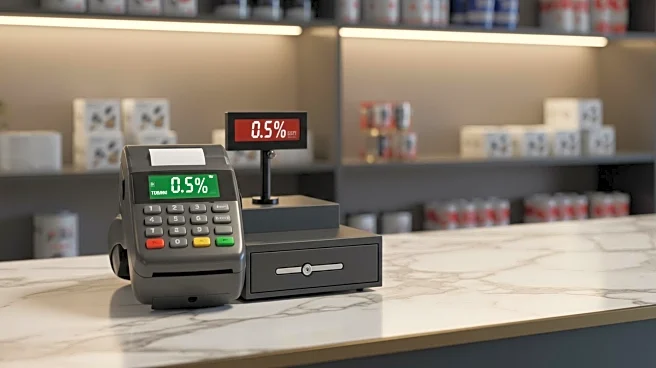What's Happening?
Retail sales in the United States rose by 0.5% in July, according to the Commerce Department. This increase comes despite consumer concerns over inflation and economic uncertainty. Sales growth was observed across various categories, including car dealerships, furniture stores, and online platforms. The rise in retail sales indicates that consumers are continuing to spend, driven by low unemployment rates and businesses managing the impact of tariffs. However, consumer sentiment has declined, reflecting apprehension about future economic conditions.
Why It's Important?
The increase in retail sales is a positive sign for the U.S. economy, as consumer spending accounts for a significant portion of economic output. Despite concerns about inflation and tariffs, consumers are maintaining their spending habits, which supports business growth and employment. The resilience of consumer spending is crucial for sustaining economic momentum, especially in the face of potential economic challenges. Businesses have adapted to tariff pressures, helping to mitigate inflationary impacts and maintain consumer confidence.
What's Next?
While retail sales have shown growth, the decline in consumer sentiment suggests potential challenges ahead. Businesses may need to continue adapting to tariff-related pressures to prevent inflation from affecting consumer spending. Monitoring consumer behavior and sentiment will be important for predicting future economic trends. Policymakers may consider measures to address consumer concerns and support continued economic growth.
Beyond the Headlines
The ongoing trade tensions and tariff policies have created uncertainty in the market, influencing consumer sentiment and business strategies. The ability of businesses to manage these challenges without resorting to layoffs has been crucial in maintaining economic stability. The long-term impact of tariffs on inflation and consumer spending remains a key area of concern for economists and policymakers.











